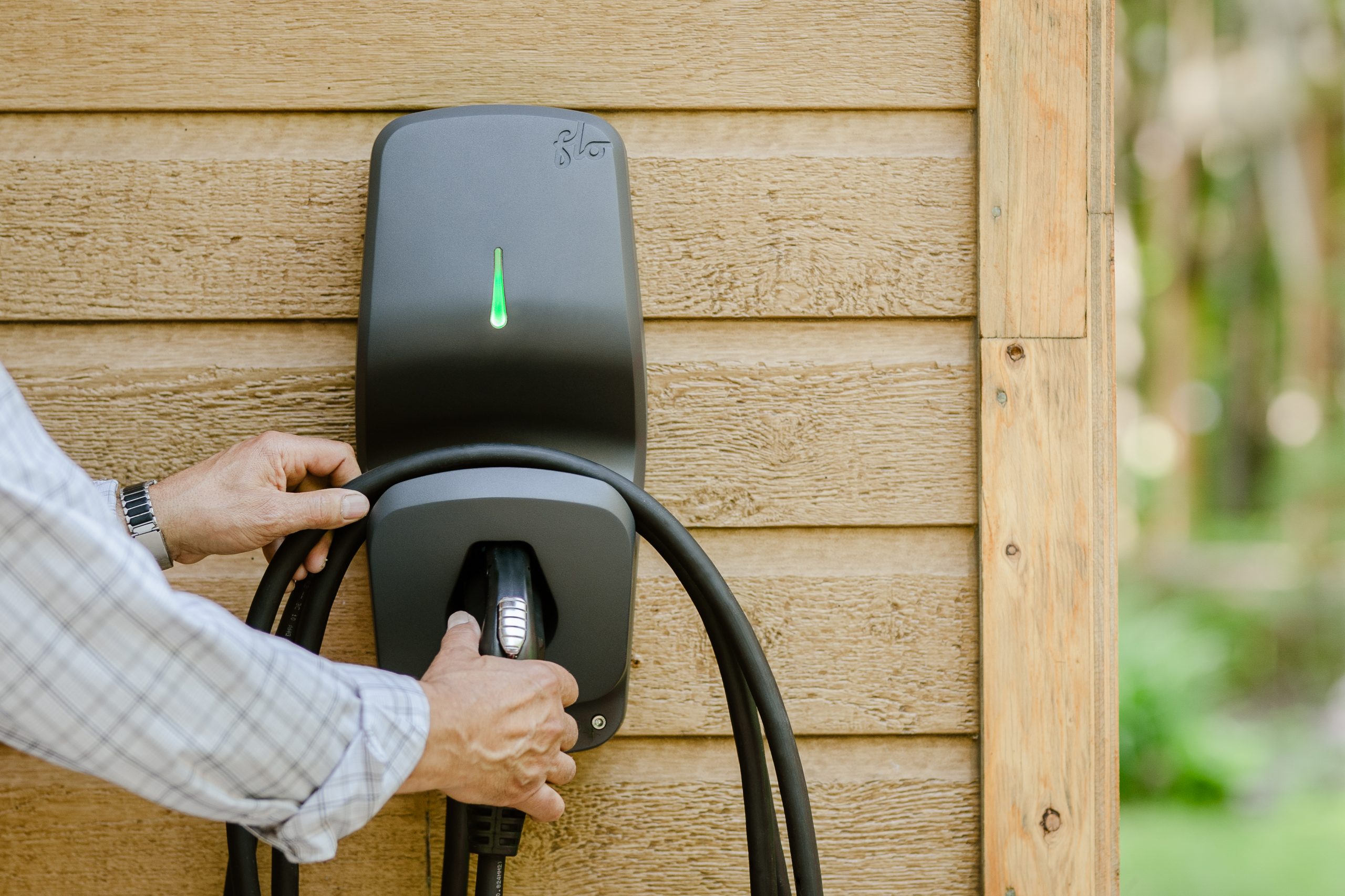What is the Most Efficient Hot Water Heating System for My Business?8 min read
Reading Time: 7 minutesAn Energy Efficient Water Heater Can Help Your Business Save on Energy Costs
With overhead costs a constant reality for business owners, finding ways to potentially save on monthly energy bills while not compromising on performance can be a major benefit. In this context, one essential piece of equipment to consider is your water heater.
Regardless of whether you are running a restaurant, a salon, or another type of commercial business, you should be able to rely on your water heater and trust that it will run efficiently day in and day out. We hope the information below helps to provide a clearer picture of what to consider when upgrading your water heater.
Browse This Content
- What Energy Sources Power Water Heaters?
- What Types Of Water Heaters Are Used in Commercial Settings?
- What is the Most Efficient Hot Water Heating System for My Business?
- What is More Efficient? An Electric Water Heater or A Gas-Powered Water Heater?
- Are Tankless Water Heaters or Storage Tank Water Heaters More Efficient?
- The Right Water Heater For Your Business Depends on a Number of Factors
- Have More Questions About Your Water Heating System? Contact Us Today!
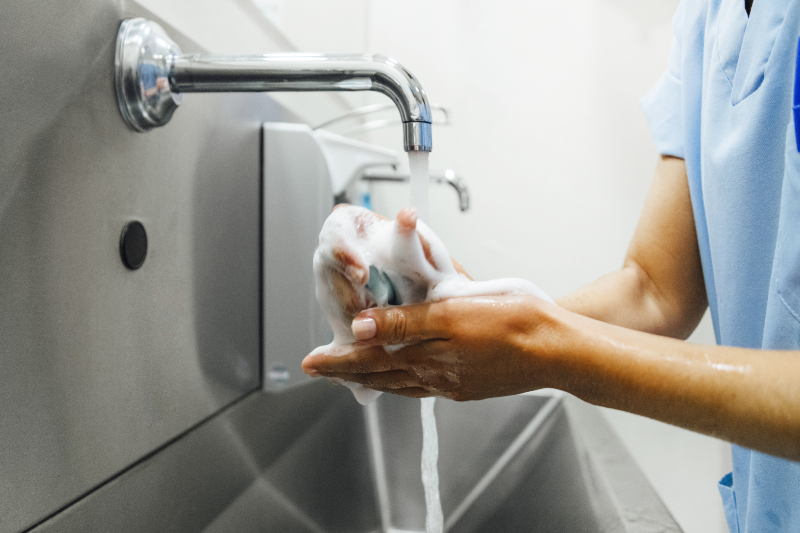
What Energy Sources Power Water Heaters?
Before getting to which type of hot water heating system can be most efficient, let’s look at the various energy sources that power water heaters in commercial settings.
Electricity: Electric water heaters use electricity to heat up elements which in turn heat the water. Unlike propane- and natural gas-powered water heaters, they do not require additional space for venting.
Natural Gas: These gas-powered systems use a burner controlled by a gas valve and a thermostat to heat water. The exhaust gases produced by this process must then be vented. Natural gas water heaters can cost more than electrical units, but they may offer savings in the long-run depending on local energy prices.
Propane: Propane water heaters are powered by essentially the same concepts that power natural gas water heaters.
What Types Of Water Heaters Are Used in Commercial Settings?
It’s also important to understand that there is not just one type of water heater. There are two overarching water heater designs that use distinct methods to heat and supply water in commercial buildings — Tankless Water Heaters and Storage Tank Water Heaters.
Storage Tank Water Heaters
Storage tank water heaters are the units that likely come to mind when picturing a water heater. They operate by heating and storing water in large tanks so that hot water is always available. There are a number of different types of storage tank heaters that vary based on the energy source used and venting requirements:
Conventional: Vent vertically through the roof or chimney of a building where exhaust gasses naturally rise out through the pipe. Simple, inexpensive, yet less efficient, these models are becoming increasingly obsolete.
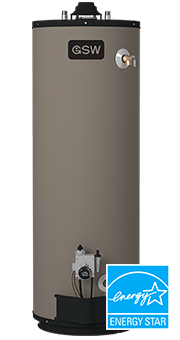
Power Vented: Use a motorized blower to push exhaust gasses through pipes located at the side or on the roof of a building, offering more flexibility when it comes to installation. While they can be slightly more efficient than conventional models, they require electricity, give off fan noise and are more complex to service.
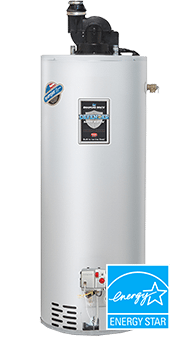
Direct Vented: With no electricity or complex chimney venting required, direct vent models draw combustion air from the outdoors and vent exhaust gasses out of a vent pipe connected directly to the outside wall of a building.
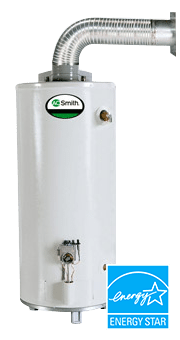
Power Direct Vented: Operate in the same way as direct vent models, with the major difference being the fact that they use a motorized blower which can create fan noise.
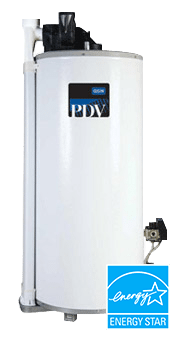
Electric: An electric water heater uses electricity to heat water in the tank and does not require venting, offering more flexibility for installation locations.
Heat Pump Electric Water Heaters: Instead of generating heat directly, heat pump water heaters use electricity to transfer heat from one place to another. These systems pull heat from the air in a surrounding space — such as a basement or mechanical room — and transfer it to the tank of water to heat it up.
Depending on the building in question, some of these models will be more advantageous than others. For example, Electric Storage Tank Water Heaters use electricity and do not require venting. This makes them a far more flexible option for facilities with limited space for venting infrastructure. Conversely, Power Vented Gas Water Heaters and Conventional Gas Water Heaters require existing or newly-installed venting systems.
Tankless Water Heaters
In contrast to storage tank systems that constantly heat and store water whether it is being used or not, tankless water heaters heat water on-demand and only when it is needed. Tankless systems are small and compact, which can help businesses with smaller floor plans.
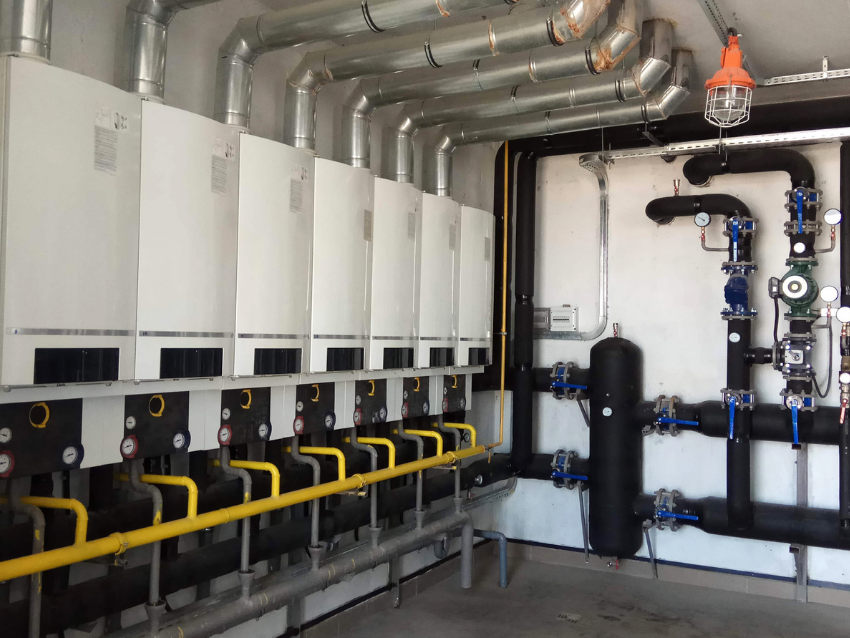 LEARN MORE ABOUT WATER HEATERS FROM RELIANCE >>
LEARN MORE ABOUT WATER HEATERS FROM RELIANCE >>
What is the Most Efficient Hot Water Heating System for My Business?
Now that we have a background on the different models and energy sources for water heaters, let’s try and answer the question we started the article with: which water heater is the most efficient?
Heat Pumps Are the Most Energy Efficient Water Heater Option
Heat pumps are often used in heating and cooling applications, but they can also be used to heat water. Because they use electricity to move heat from one place to another instead of generating heat directly, heat pumps can be incredibly efficient. While they can have a higher upfront cost than other storage tank water heaters, their efficiency can lead to lower operating costs.
What is More Efficient? An Electric Water Heater or A Gas-Powered Water Heater?
Electric water heater options such as heat pumps will run more efficiently than conventional gas-powered water heaters. That said, natural gas is generally cheaper than electricity, which could make natural gas water heaters the more economical option for your business.
Are Tankless Water Heaters or Storage Tank Water Heaters More Efficient?
In a direct comparison, tankless water heaters are generally considered to be more energy-efficient. Why? As soon as water sits in a tank, it begins to lose heat. This means a traditional water heater will turn on and off to keep water warm and ready to go. Because tankless models heat water on-demand, they are more energy-efficient. In fact, certain models have an energy factor of 0.96, which means 96% of the fuel is being used to heat the water and only 4% is wasted. The result? A tankless water heater could help you lower your energy bill.1
Condensing Storage Tank Water Heaters Are Highly Efficient
Certain gas-powered storage tank water heaters can run less efficiently than others. In these systems, exhaust gases from the burners vent through the top of the unit. These exhaust gases are hot, indicating that some heat from the combustion process is escaping and that a certain amount of energy is being wasted.
In condensing storage tank models, these heated flue gasses are kept in the tank for a longer period of time, which helps to maximize the amount of heat transferred to the water. By the time the process is finished, the exhaust gases will have cooled significantly and condensed, meaning that more of the heat generated by the system has transferred to the water in the tank.
Condensing water heater systems typically carry a higher upfront cost when compared to non-condensing systems. That said, they can also be far more efficient and potentially lead to lower energy bills.

The Right Water Heater For Your Business Depends on a Number of Factors
It’s easy to see that simply choosing “the most efficient” water heater is not a simple choice. Consider that, while tankless models are considered more efficient, they are also more expensive upfront and can come with installation challenges. They also may not be suitable for commercial businesses like large restaurants, which use very large amounts of hot water each and every day. Consider also the running costs of electric water heaters, the installation challenges that come with certain gas-powered models, and the fluctuations of energy costs in your area. Business owners should also consider things like:
- Their Required Volume of Water: How much hot water do you need?
- Frequency of Use: How often will the system be in use?
- Space limitations: How limited are you in terms of possible installation locations?
- Budget: How much are you willing to spend?
This is all to say that it’s a choice that depends on a number of factors. As a result, it is essential to consult with experts to ensure you are installing a unit that is right for your facility and that will balance performance, comfort, cost, and efficiency!

Have More Questions About Your Water Heating System? Contact Reliance™ Today!
Determining the most efficient water heating system for your business can be a challenge, but we are here to help! At Reliance Commercial Solutions™, we will help you select, service, and maintain a water heater that will help your facility run at peak performance. Working with us also means you can take advantage of a Water Heater Rental plan, which offers free standard installation as well as long-term protection for an affordable monthly price. You can also rest easy knowing your equipment is backed by an industry leader that has delivered excellent service and results for over 60 years.
To learn more about water heaters and the numerous benefits that come with our rental and financing plans, get in touch with a Reliance representative today!
LEARN MORE ABOUT RELIANCE COMMERCIAL SOLUTIONS >>


